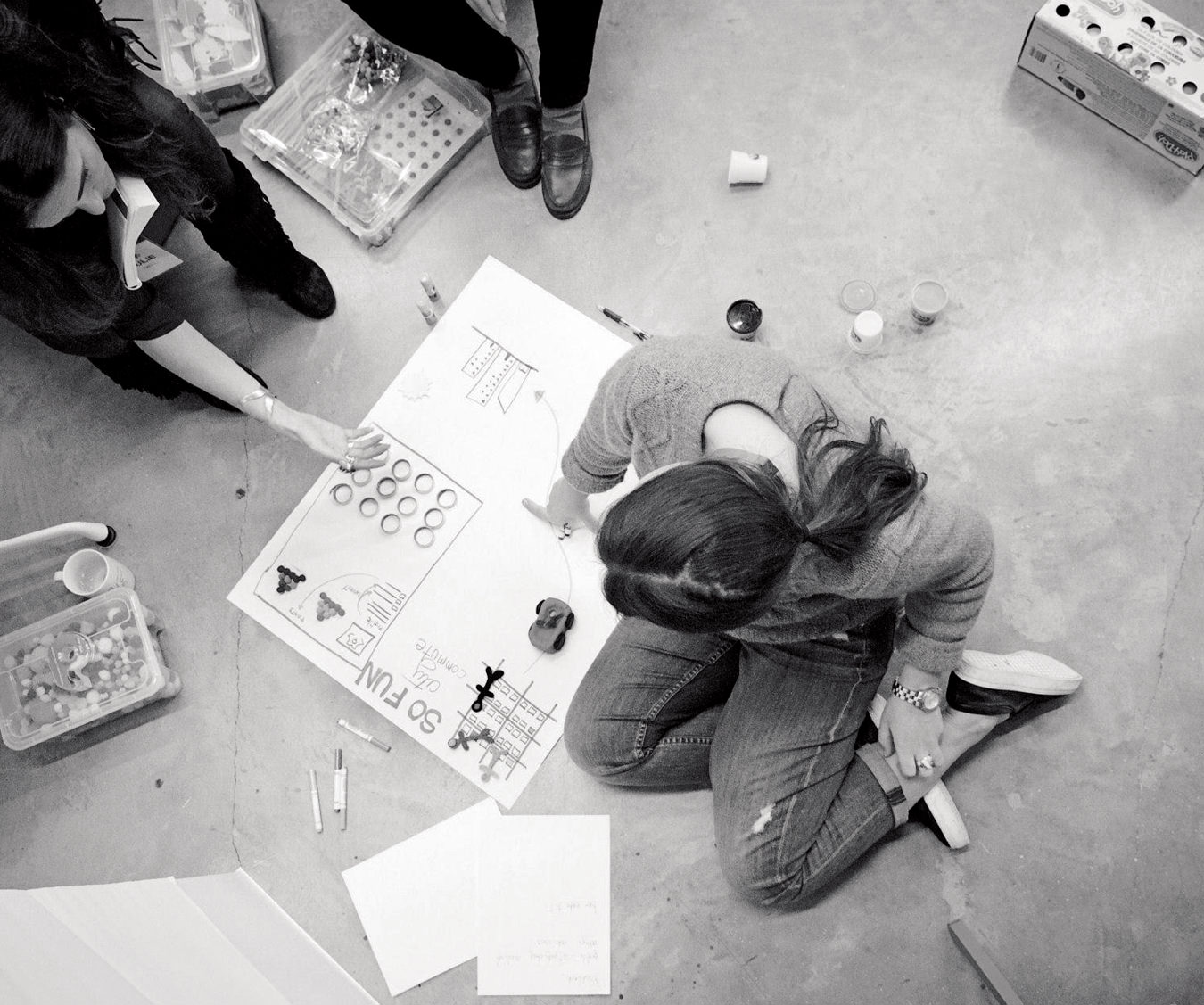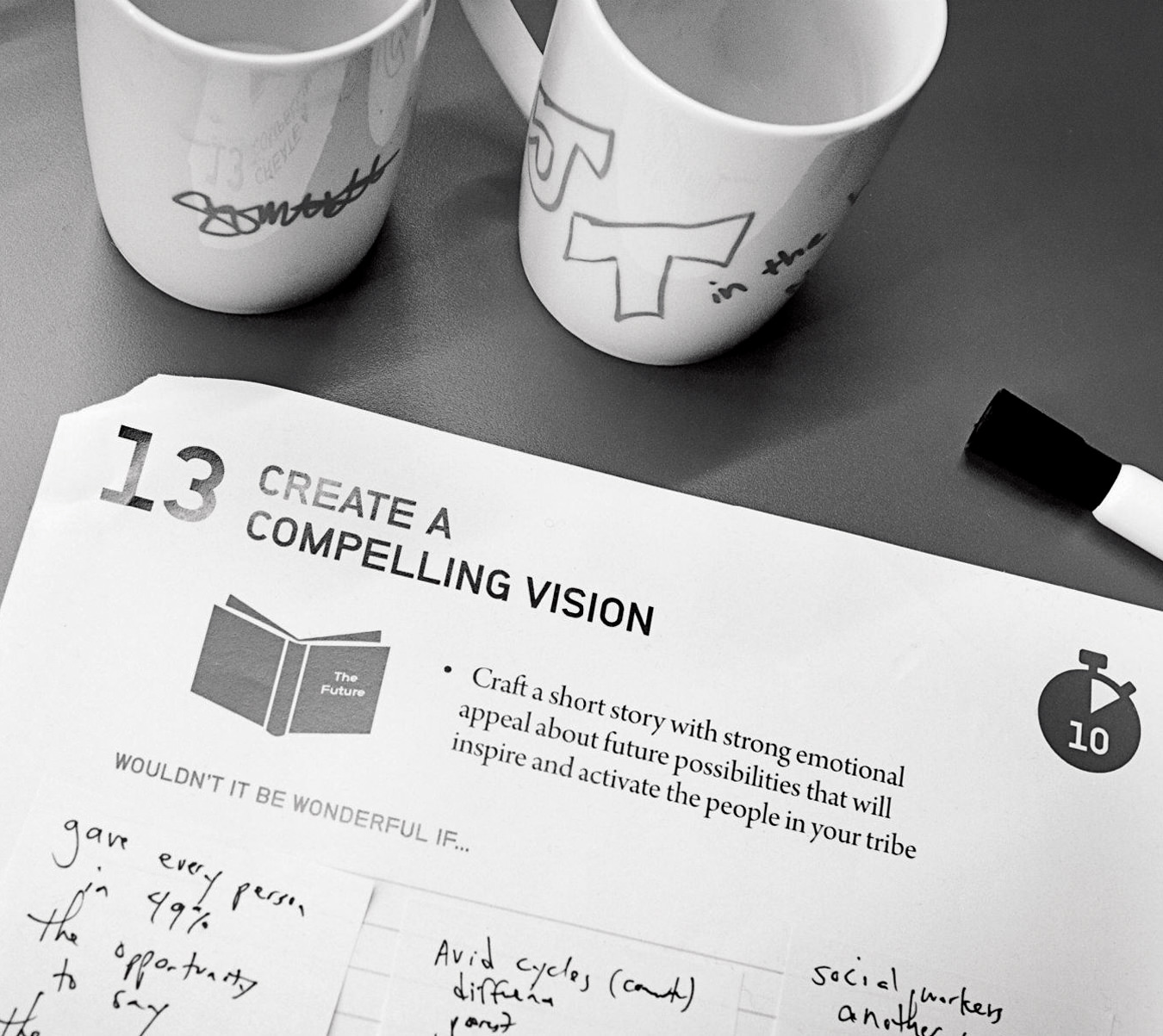“Vancouver has always represented the future to me,” says Lee Feldman, co-founder of the city’s new THNK School of Creative Leadership. Feldman had been living in Amsterdam for 10 years before his return to Vancouver. “I fell in love with [Amsterdam], its people, the culture, the cycling, yet always knew Vancouver was home and where my family would end up,” he says. “My second child was born in 2011 and I was spending a lot of time thinking about what kind of future she was going to inherit. I had sold my business, Blast Radius, and was starting to apply my funds to projects that had the potential for creating a more positive future.” He then serendipitously met THNK co-founder Menno van Dijk at a dinner party for his daughter’s school in Amsterdam. “He invited me to visit a new school he was setting up,” says Feldman. “They were looking for one final participant to fill up their inaugural class. I walked into the school the next morning and immediately recognized the other founder, an old friend named Bas Verhart. As soon as I saw him, I said, ‘Where do I sign up?’ I went from being a CCO to becoming a student again.”
This is the calibre of student that THNK—whose third campus in Lisbon opened earlier this year, with a fourth in Shanghai set to open later in 2015—attracts for its twice-yearly, part-time experiential learning program: already established, international, mid-career (average age: 38) leaders and entrepreneurs. Candidates are chosen to create a confluence of cultures, industries, personalities, and geographic regions to inspire expansive thinking. “We have 24 global thinkers joining us for our inaugural class, coming from New Zealand, Chicago, San Francisco, New York, and Vancouver,” says THNK Vancouver’s director of strategic partnerships Maryn Wallace. THNK Amsterdam alumni include Princess Reema Bint Bandar Al-Saud of Saudi Arabia, who recently gave the keynote at South by Southwest; Dr. Rand Hindi of Paris, an entrepreneur and data scientist, recently named one of Forbes’ 30 under 30 and MIT Technology Review’s Innovators Under 35; and Feldman, who turned to his former Blast Radius colleague Sarah Dickinson to co-found THNK Vancouver together.
In January 2015, the first class ascended the stairs to THNK Vancouver’s campus—“Home,” as they call it—on the ground floor of Crosstown’s 103-year-old Sun Tower building, designed by Evoke International Design. The central area is punctuated by several square pillars that are painted as high as the hand can reach with whiteboard paint, as are most of the walls, so moments of insight can be captured no matter where the students find themselves. Modular furniture, paying homage to THNK’s Dutch roots, can be discreetly stashed in cubbies or on wall hooks. The kitchen’s longtable encourages mealtime communion, while the craft corner, stocked with feathers and Play-Doh, stimulates personal expression. The wood-panelled lounge offers a place to relax; its bookshelf is a secret doorway to the boardroom.
During their time at THNK—four week-long modules spread over six months—participants immerse themselves in four different learning elements: Forum, workshops and interactive conversations with visiting experts including, at the Amsterdam campus, Pixar Animation Studios lead Michael B. Johnson; Quest, personal coaching from leading professionals such as faculty member Alex Trisoglio, an internationally sought-after executive coach and Buddhist teacher; Challenge, which inspires personal transformation through social impact by tasking students with creating real solutions for societal issues; and Impact, which takes participants’ ideas and helps put them into action for maximum societal impact. For Sapna Dayal, the executive director of charity imagine1day, “all aspects of my leadership and of my being have been exercised at THNK Vancouver.”
The school has big plans to extend its mindful education programs into the wider community; public programming begins this fall with sessions including the art of thinking big and storytelling that moves people to act. “Our goal is to set a new standard,” says Feldman. “To transform individuals who have the potential to transform the world.”










